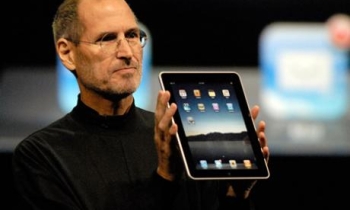The wooing of America Online has begun.
Comcast Corp., the nation's largest cable operator, and online search leader Google are in talks to acquire a stake in AOL's recently launched free Internet portal, AOL.com, according to people familiar with the talks. A stake in AOL, whose collection of web sites including Moviefone and Mapquest draws an audience second only to Yahoo's, would help Google gain the upper hand over rivals MSN and Yahoo.
Microsoft Corp. also has held discussions with AOL (which, like FORTUNE, is a unit of Time Warner) about a possible joint venture with its MSN portal. Other suitors, like Barry Diller's IAC/Interactive Corp., could still crawl out of the woodwork–if they haven't already.
AOL's belle-of-the-ball status is a dramatic departure from the way the company has been perceived in recent years. The once-hot web property has suffered from a steep decline in its base of dial-up subscribers, and has failed to get customers to keep paying for AOL's services when they opt to subscribe to $40-a-month broadband services from their cable or phone companies. To make itself relevant again, and to exploit the exploding online advertising market, AOL earlier this year made all its content available for free via its AOL.com portal. Since then it has garnered positive buzz for its presentation of the Live 8 concert and other pop performances, as well as other on-demand video fare.
Consumers and rock critics weren't the only ones who noticed the makeover.
According to people familiar with the talks, Google approached Comcast last week to see if the cable operator would be interested in teaming up to bid for a stake in AOL.com. Sources say Google and Comcast are interested only in the portal and related content like AOL Instant Messenger, and not in the dial-up business segment. Any possible deal would be structured as a joint venture among Time Warner, Google and Comcast, with Time Warner maintaining a majority stake in the online unit. The tie up would give AOL access to Comcast's 21 million subscribers–8 million of whom use the cable operator's broadband service to access the Internet. (The Comcast.net portal for broadband users does not run ads–but that would likely change if it strikes a deal with AOL.) Comcast, in turn, would get the opportunity to market its video and phone services to AOL users–and also to grab a piece of the lucrative online advertising market. Google would retain its position as search provider to all AOL sites, which have a total audience of more than 100 million unique users a month. In fact, discussions between AOL and MSN got started, a source says, when Microsoft asked AOL to consider swapping out Google for Microsoft's new search tool.
Comcast, Google and Time Warner all declined to comment.
Time Warner clearly is trying to find ways to raise the valuation of AOL, and in turn, buoy its tepid share price, which has hovered between $16 and $19 for the last two years. Investor Carl Icahn has become an increasingly vocal critic of management's failure to move the stock price, and he is pushing CEO Dick Parsons to buy back $20 billion in Time Warner stock and sell off the entire cable operation.
Executives of the media company apparently are looking for any new investment that would value all of AOL at about $20 billion–more than double what most analysts say the unit is worth today. That's still a big discount to the valuations of Yahoo! ($48 billion) and Google ($84 billion), but a premium to other dial-up providers in transition, such as Earthlink. ($1.4 billion.)
AOL executives are reveling in their newfound desirability. At the Web 2.0 conference last week, America Online CEO Jonathan Miller was asked about AOL's continued ability to aggregate users and even fuel businesses such as Google. "We're the largest swing vote," he told the audience. "I'm not sure it guarantees anyone anything, but it's a powerful thing."
The Google/Comcast deal, if consummated, certainly would fly in the face of one of Parson's basic tenets: Simplifying the company. When Parsons took over as CEO in May 2002, he vowed to reduce the number of joint ventures, subsidiaries and alliances that had sprung up at Time Warner throughout the years. That complexity, he argued at the time, made it hard for investors to understand and appropriately value Time Warner. To streamline the company, he sold off certain business like Warner Music and restructured others.
But for the sake of boosting AOL's valuation, Time Warner apparently is willing to embrace complexity again.









